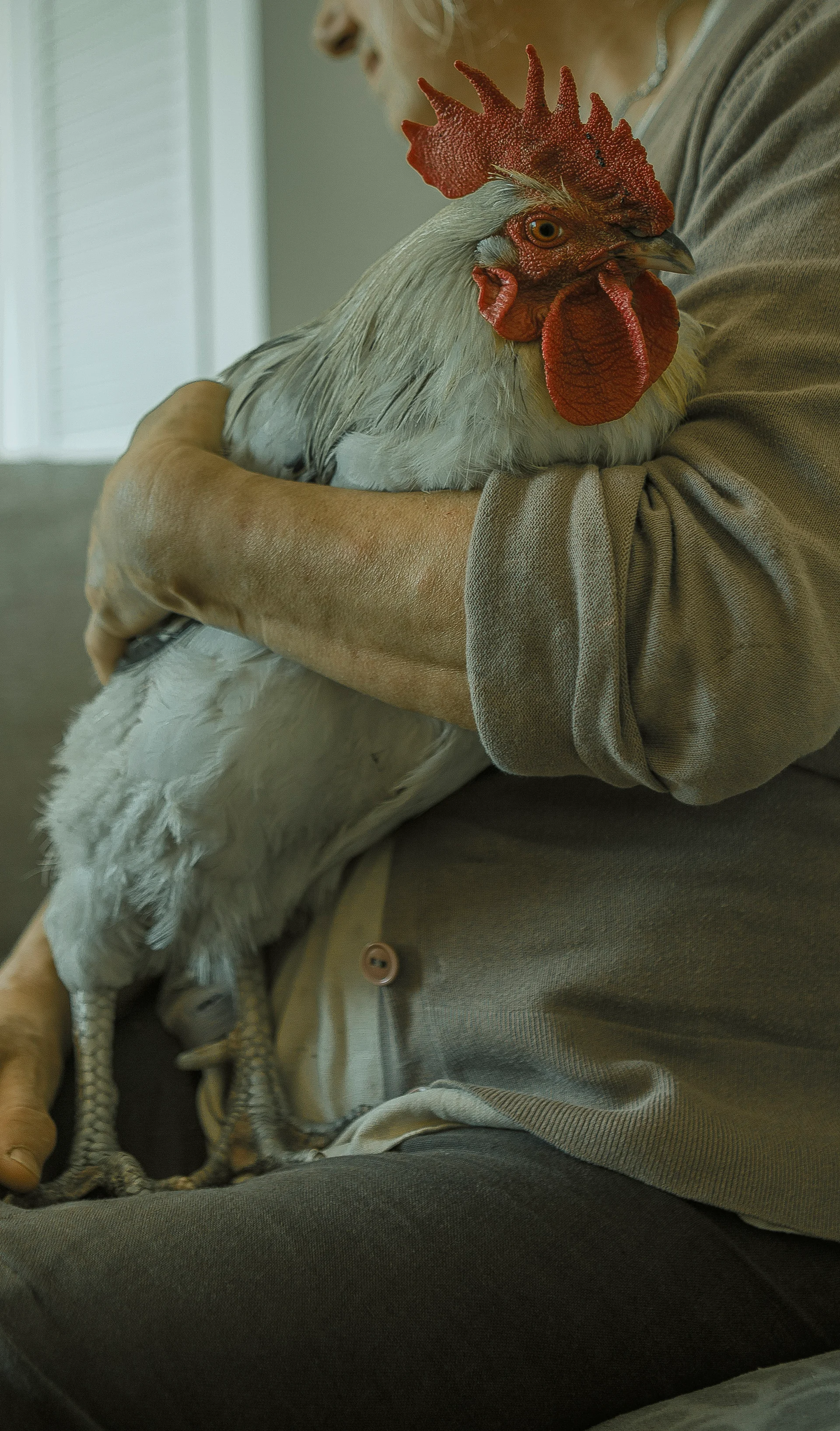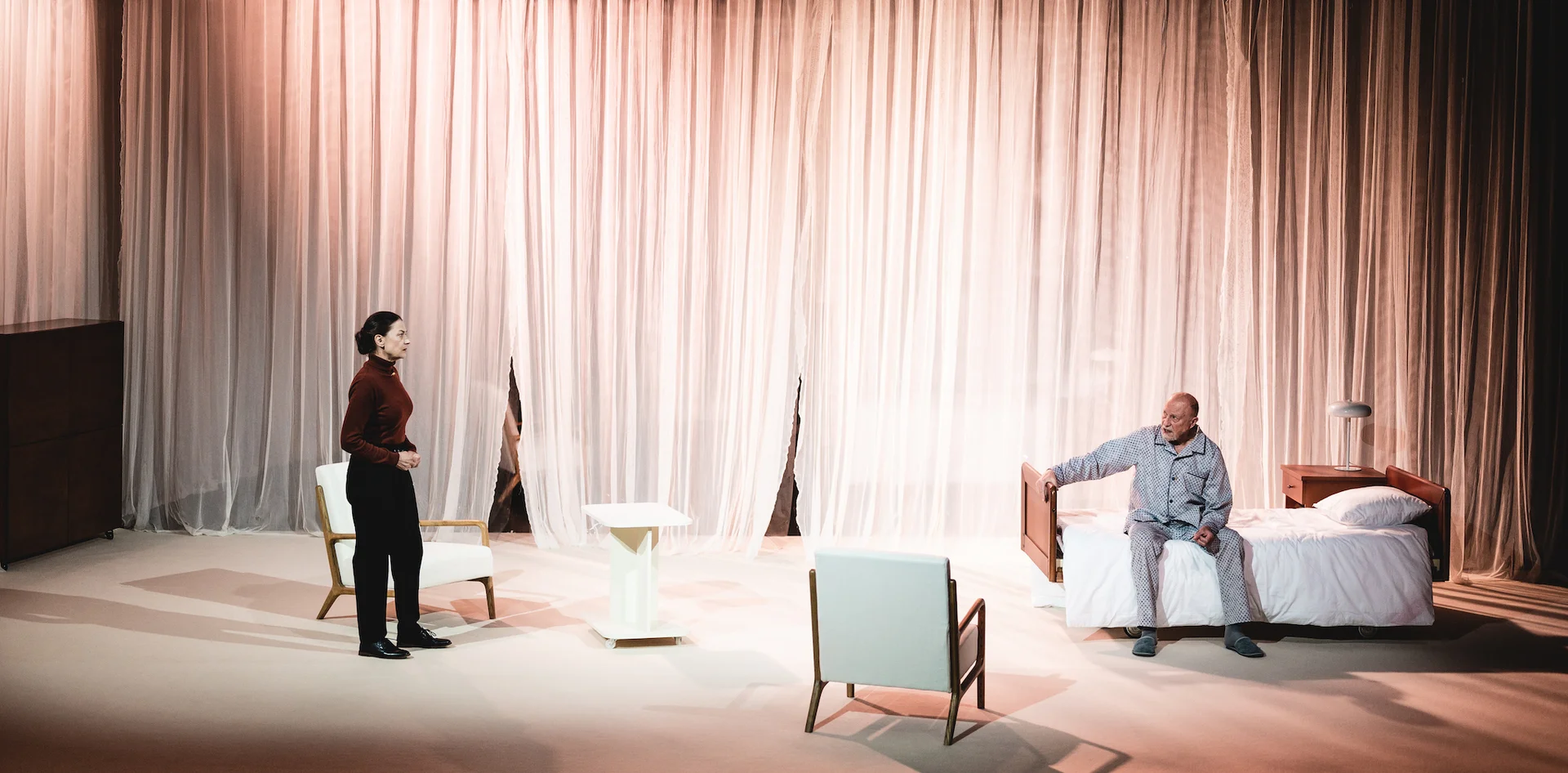Father
- direction, musical development: Norbert Rakowski

Throughout our lives, each of us develops, builds our personality, our identity. And then... everything suddenly slips away, falls apart and is lost irretrievably. Is it still me? Is it possible to stop being 'oneself'? "Father" is not a story about illness, but about patience, love and the art of empathy. About the inevitability of passing and the attempt to search for oneself in a blurring reality. About what happens to a man when his dignity and personality drowns, but also about the great effort the drowning man makes to stay afloat.
Cast
- André: Jacek Piątkowski
- Anne: Magdalena Myszkiewicz
- Eryk: Konrad Pawicki
- Laura: Barbara Biel
- Man: Michał Lewandowski
- Woman: Adrianna Janowska-Moniuszko
Creators
- translation: Bogusława Frosztęga
- direction, musical development: Norbert Rakowski
- scenography: Maria Jankowska
- costume: Krystian Szymczak
- light direction: Bogumił Palewicz
- video: Wojciech Kapela
- assistant to the director: Barbara Lewandowska
- stage manager: Anna Pawicka
Florian Zeller is an award-winning French writer and playwright. His works have been translated into more than a dozen languages and his plays have been successfully staged on many European stages. "The Father" is Zeller's seventh play, a tragifarce that The Times declared "one of the best plays of the decade" and The Guardian "the most applauded and acclaimed play of the decade". The film adaptation of the play (directed by the author himself) won two Oscars in 2021.
Theatre podcast: A split second - interview with director Norbert Rakowski (in Polish).
AWARDS AND FESTIVALS:
- Amber Ring for the best performance of the 2022/2023 season

Photo by Karolina Babińska, layout: Pełnia Studio
Reviews
- „Jacek Piatkowski has created great theatre. With the title role of the father in Florian Zeller's play, he showed the heights of acting (...). The audience watches the play from the father's point of view. This is why the first surprise comes quite quickly, when everything that was said in the first scene turns out to be untrue in the second (...) the play maintains tension from the first to the last scene”.– Małgorzata Klimczak, Dziennik Teatralny
- „To mogłoby być histeryczne, kompulsywne, rozedrgane czy nerwowe. Nie jest. Reżyser zaproponował aktorom stworzenie postaci powściągliwych, wyciszonych i skupionych. Nikt jednak nie poddaje się tu śmierci. Wszyscy toczą wewnętrzne bitwy nie tylko z nią, ale przede wszystkim ze sobą – ze słabościami, obawami i cierpliwością. Przejmującą kreację stworzyła Magdalena Myszkiewicz, jej Anna trzyma „fason” i choć bezgranicznie kocha ojca znajduje się na granicy wytrzymałości. Przekracza ją (fizycznie) jej partner Eryk – konkretny Konrad Pawicki. Z subtelnością swoje role zbudowali także Barbara Biel (cierpliwa Laura) oraz Adrianna Janowska-Moniuszko i Michał Lewandowski (ciekawy zabieg „rozmnożenia” postaci dla ilustracji demencyjnych majaków). I wreszcie On – André, tytułowy ojciec w ryzykownie zuchwałej interpretacji Jacka Piątkowskiego”.– Daniel Źródlewski, Teksty Żródłowe (go to source)
Multimedia
